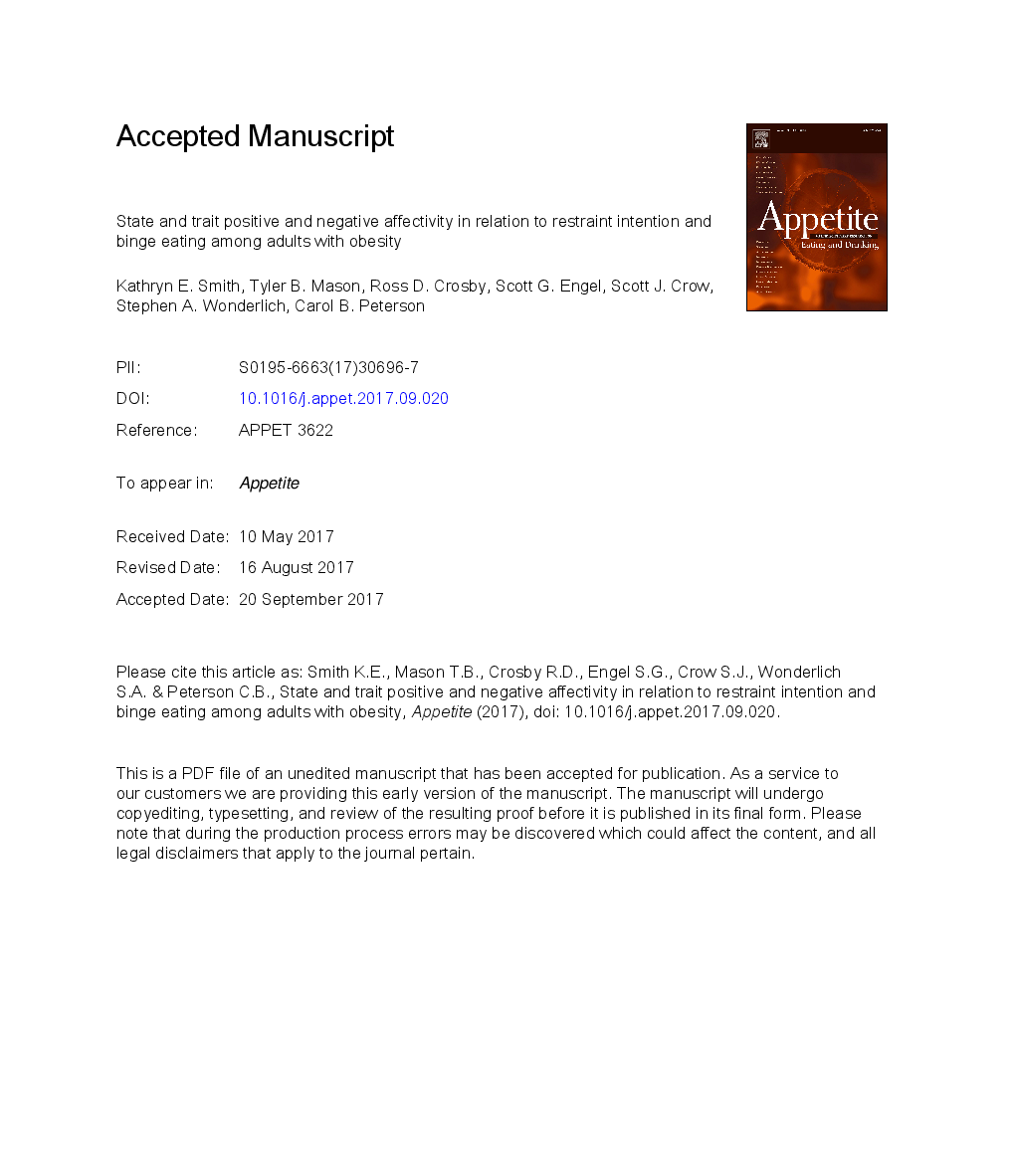ترجمه فارسی عنوان مقاله
وضعیت و خواص مثبت و منفی در ارتباط با قصد محدودیت و خوردن غذا در بین بزرگسالان با چاقی
عنوان انگلیسی
State and trait positive and negative affectivity in relation to restraint intention and binge eating among adults with obesity
| کد مقاله | سال انتشار | تعداد صفحات مقاله انگلیسی |
|---|---|---|
| 120300 | 2018 | 32 صفحه PDF |
منبع

Publisher : Elsevier - Science Direct (الزویر - ساینس دایرکت)
Journal : Appetite, Volume 120, 1 January 2018, Pages 327-334
ترجمه کلمات کلیدی
چاقی، تاثیر می گذارد، محدودیت رژیم غذایی، خوردن غذا، ارزیابی لحظه ای اکولوژیکی،
کلمات کلیدی انگلیسی
Obesity; Affect; Dietary restraint; Binge eating; Ecological momentary assessment;

